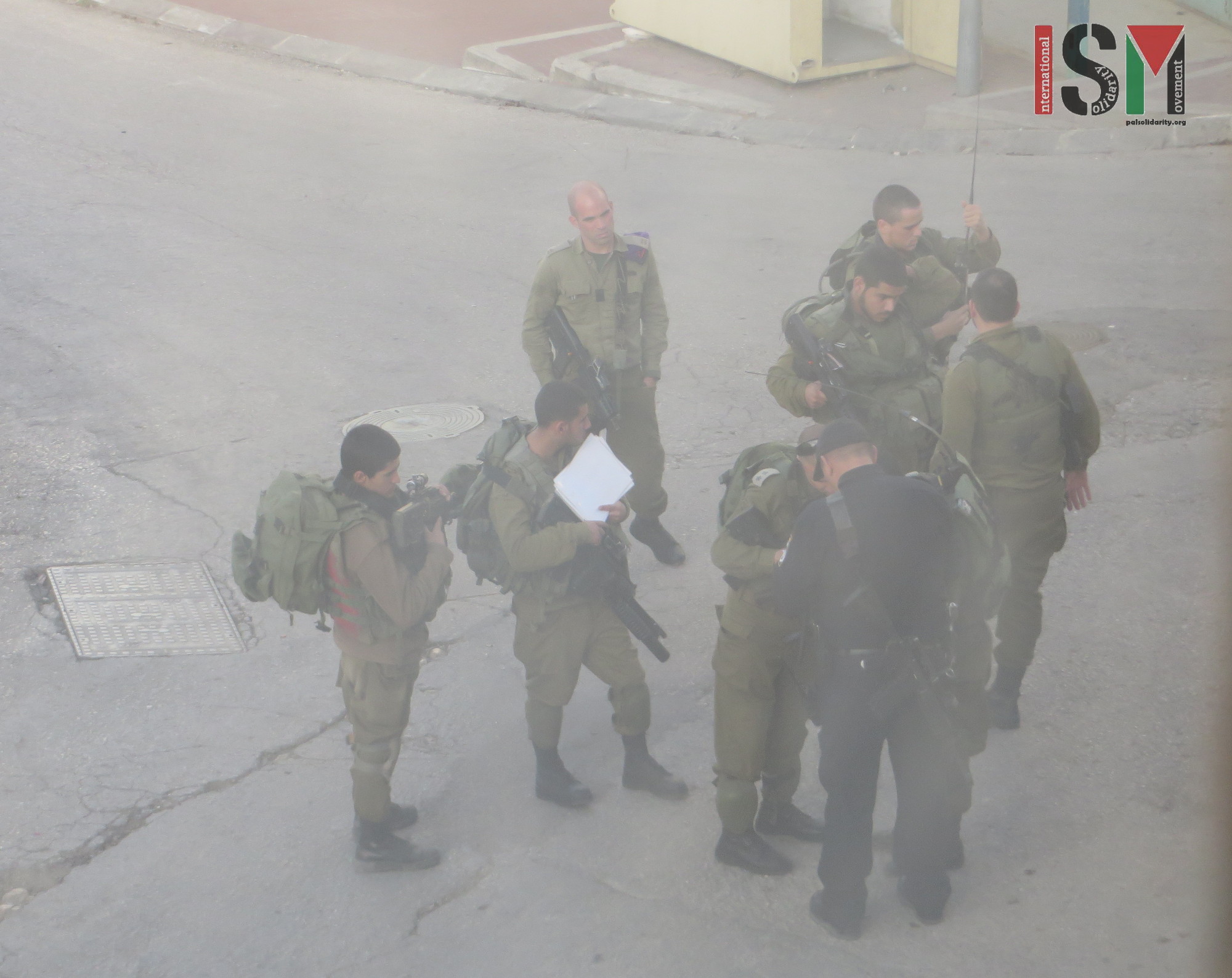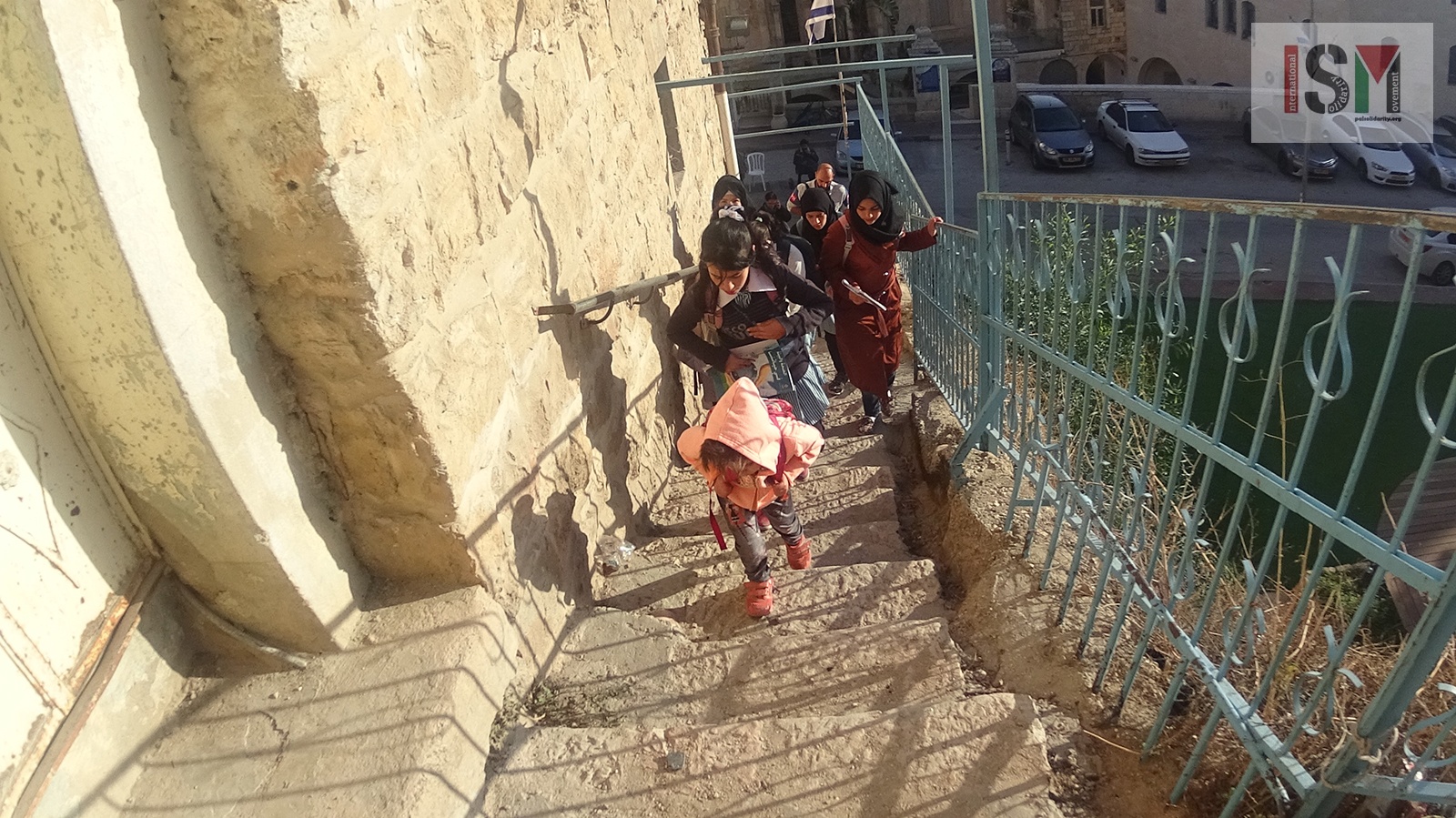Tag: Israeli Army
-
Arbitrary use of closed military zone orders in Hebron
22nd November 2015 | International Solidarity Movement, al-Khalil team | Hebron, occupied Palestine After being allowed back to their legally owned apartment in Tel Rumeida in occupied al-Khalil (Hebron) on Thursday, international human rights defenders were kicked out from their home for the third time by Israeli forces the following day. The draconian restrictions of…
-
Night raids continue in al-Khalil (Hebron)
22nd November 2015 | International Solidarity Movement, al-Khalil team | Hebron, occupied Palestine On Tuesday, 17th November, several groups of soldiers raided houses in the Wadi al-Hurriya neighborhood of al-Khalil (Hebron), an H1 district legally outside of Israeli control. From 7.30pm, Israeli forces were present in the area, divided into groups of 7-12 soldiers and…
-
Israeli forces and settlers increase efforts to force Palestinians out and silence observers
21st November 2015 | International Solidarity Movement, al-Khalil team | Hebron, occupied Palestine Monday 2nd November 2015, Israeli forces again attempted to prevent international observers from monitoring a checkpoint in a flashpoint location in occupied al-Khalil (Hebron). Settlers from the illegal settlements in al-Khalil physically attacked internationals while soldiers where standing idly by watching. As…



